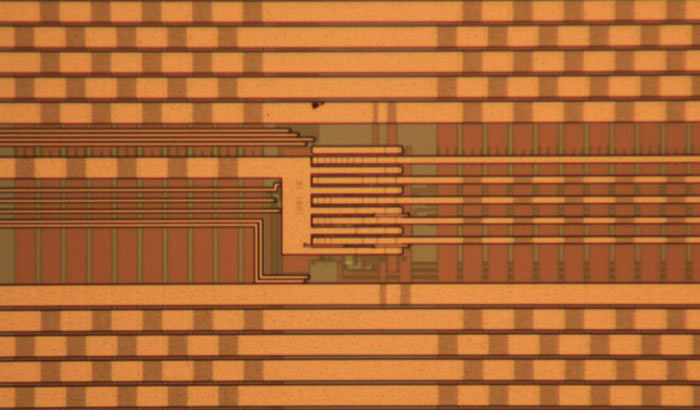Researchers at North Carolina State University have come up with a novel approach to building faster, smaller computer chips. In brief, the scientists have enabled computer circuits to be programmed to perform different tasks using an analogue nonlinear circuit with a digital interface. This novel use of tech enables the circuit to implement different digital functions in each clock cycle without halting for reconfiguration. Such chaos-based ICs can simply "get more out of less". The scientists suggest that 100 million of their new non-linear chaotic transistors could do the work equivalent to 3 billion traditional electronic transistors.

Integrated circuit. Credit: Behnam Kia
The NC State press release talks about how the new reconfigurable chaos-based microchips offer a possible solution to Moore’s Law. The traditional cycle of process shrinking to fit in more transistors for more performance is hitting various speed-bumps so some sideways thinking is required. Utilising chaos theory, via nonlinear transistor circuits, allows dynamics-level behaviours to initiate different processing tasks using the same circuit.
Behnam Kia, senior research scholar in physics at NC State, and lead author of a paper describing the work, said that the NC State designed chips are much more efficient. "In current processors you don’t utilize all the circuitry on the processor all the time, which is wasteful," Kia explained. "Our design allows the circuit to be rapidly morphed and reconfigured to perform a desired digital function in each clock cycle." Thus analogue nonlinear circuits with digital interfaces are at the heart of the new processor design.
If you currently doubt whether this new approach to computing architecture will see the light of day, the researchers have good news for you. The NC State press release says that this alternative approach for computing "is compatible with existing technology and utilizes the same fabrication process and CAD tools as existing computer chips, which could aid commercial adoption". Furthermore NC State colleague William Ditto, professor of physics and dean of the College of Sciences, said that "We are nearing commercial size and power and ease of programming in our evolving designs that could well be of significant commercial relevance within a few months".
You can read more about chaos-based computer chips on the NC State blog. The full research paper called 'An Integrated Circuit Design for a Dynamics-Based Reconfigurable Logic Block' is available, for a fee, via IEEE Xplore.













